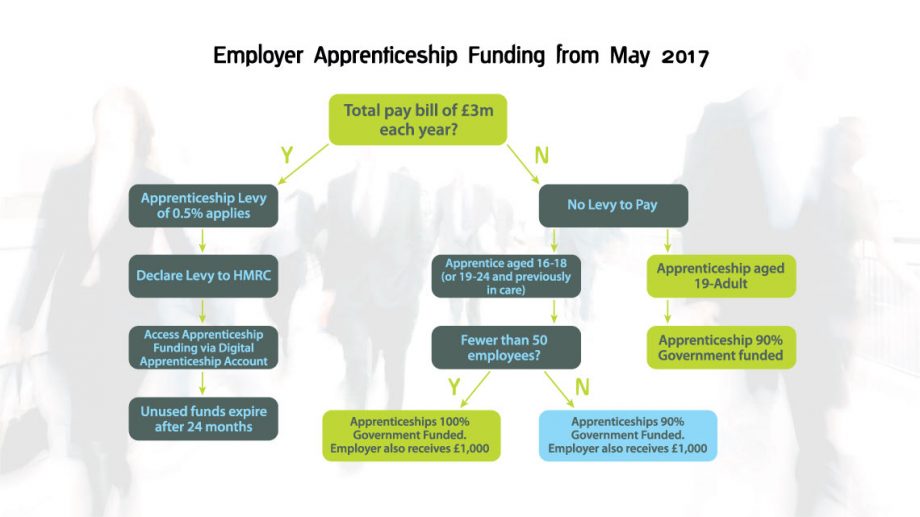Fit for the Future
If you’re looking to create a workforce for the future or boost the skills of your existing employees, then apprenticeships could well be the solution you’re looking for. Apprenticeships are transforming businesses throughout the UK because they are not only meeting skills needs and boosting productivity; apprenticeships are also improving competitiveness and profitability.
44% of apprentices are 25+
The Growth Hub provides an impartial support service for employers offering advice and guidance on all aspects of apprenticeships. Call us on 0844 257 84 50 to talk to one of our specialist advisers.
Key Employer Benefits
- The average apprenticeship improves productivity by around £214 per week.
- Apprenticeships are a proven way to re-train or upskill your staff.
- Up to 100% funding could be available to support your Apprenticeship programme.
- Learning can be provided up to 100% in your workplace, minimising disruption.
- Apprenticeships lead to a more motivated and satisfied workforce, improving staff retention and providing a pathway for your future stars and business leaders.
Employer Apprentice Funding Chart
In May 2017 the government introduced a new process for apprenticeship funding for those businesses with a wage bill over £3 million per year. To help you understand how the government funding mechanism or levy may affect your business, view our Apprenticeships Funding Chart (PDF).
FAQs
Apprenticeships are government funded workbase training programmes. Depending on the age and circumstances of your employee and the size of your business, government funding may cover 100% of the training provision. For more information, call our specialist advisors on 0844 257 84 50.
The Growth Hub team can provide free, impartial and expert advice to help you identify suitable candidates for your business and the relevant apprenticeship programme. All you need to do is contact us on 0844 257 84 50 and one of our specialist advisors will help you complete a TNA (Training Needs Analysis) which is designed to put plans in place to develop and grow your business.
No. Apprenticeships are open to anyone aged 16 and over living in England and not currently in full time education. Today, people aged 25 and over account for around 44% of apprenticeship starts, as opposed to just 26% of new apprentices being under 19.
Many people will need to adapt or learn new skills throughout their working lives and an Apprenticeship can be the best route to achieving this.
Apprenticeships are tailored to fit specific job roles and functions, giving your staff the skills that are right for your business. Delivery models are flexible and based around your needs and the needs of your employee. Apprenticeships can be delivered in the following ways:
- Day release: eg one day a week at College, Training Centre or University
- Block release: eg a block of several weeks full time at a College, Training Centre or University
- Fill in work training: A Training Provider may travel to your place of work to deliver additional support in-house.
Your employee can stay on the same contract of employment whilst they study for an Apprenticeship. All you will need to provide is a line manager to support his/her studies and meet with assigned Assessor every month or so to sign paperwork and ensure that your Apprentice is supported every step of the way.
Once you know which employees you would like to enter into an apprenticeship programme we will put you in touch with one of the specialist training providers supported by The Edge partnership www.theedgeincumbria.co.uk These include the University of Cumbria, all colleges of further education and other specialist training providers.
The project delivers education and training that best supports the needs of local employers and employees in the Cumbria LEP area. The aim is to support employees to gain higher level skills and progress within the workplace or onto other opportunities such as an apprenticeship or higher level learning.
Eligible employers must have a registered business base in Cumbria and have less than 250 employees. Those who are self employed are also eligible. Their staff must be employed to be eligible.



